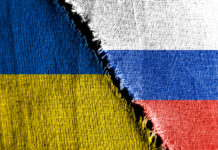Due to global geopolitical events taking place since 2022, international companies operating in Russia face challenges associated with compliance with sanctions imposed by many countries against Russia. Sanctions impede companies’ ability to continue their operations in the market even in sectors that are not directly affected.
On the other hand, in response to foreign sanctions, the Russian authorities have adopted a special set of “countersanctions” measures. These include specific restrictions and special clearance regimes primarily aimed at slowing down the exit of foreign capital from the Russian market.
Countersanctions apply mostly to foreign investors domiciled in jurisdictions designated “unfriendly”, the list of which is defined by the Russian government. The list currently includes Japan, as well as all EU members states, the US, Canada, Singapore, South Korea, and other countries that have imposed sanctions on Russia.
In such circumstances, international groups adopt their strategies with respect to the Russian market by trying to balance between sanctions pressure and their business interests, between controlling risks associated with continuing business in Russia and falling into the trap of overcompliance.
While the situation forces many investors from “unfriendly” jurisdictions to withdraw from Russia, for others – companies from China, India and Turkey, as well as Russian domestic companies – it creates an opportunity to overtake a significant portion of the quite large market left empty by the Westerners who are leaving. This article outlines the dominant strategies of those who have had to make unpleasant choices.
Strategies of foreign companies ceasing activities in Russia

Counsel
SEAMLESS Legal
Moscow
Email: georgy.daneliya@seamless.legal
Foreign companies that have decided to cease their activities in the Russian market due to sanctions pressure, or addressing reputational risks, typically adopt one of the following options.
Sale of a Russian business. This approach involves selling a Russian subsidiary or assets to a third-party buyer, usually represented by some large Russian group, or to the local management of such a subsidiary (i.e. a management buyout).
Under Russian countersanctions, the sale of shares in the Russian subsidiary by a foreign “unfriendly” shareholder triggers the need for specific clearance by Russian authorities. In most cases, permission is granted by the Governmental Commission for Foreign Investment Control. For some specifically listed entities, it is granted by the Russian president.
Clearance proceedings are complicated and time consuming. In practice, only high-profile cases enjoy the “fast track”, while for most applications clearance takes four to six months. When and if it is granted, the clearance sets out the terms and conditions of the sale transaction.
Market value, purchase price, discount. Each clearance application must contain a company evaluation report defining the market value of the shares to be transferred. Such a report must be prepared by an appraiser from the short list of appraisers approved by the Russian authorities.
When such an appraiser defines the true market value of the company, its foreign shareholder is supposed to sell its shares with at least a 50% discount. Russian authorities granting the clearance may also decide that the payment of the purchase price to the foreign applicant is made by instalments during a one or two-year period.
Exit fee. While approving the transaction, the above-mentioned commission imposes a specific payment to the Russian budget, i.e. an “exit fee”. Under current practice, the exit fee equals 15% of the market value of the sold Russian assets. The exit fee is usually imposed on the buyer. It must be paid within one month following closure of the transaction. Applicable requirements, as well as the amount of the exit fee, constantly change. Thus, recently the commission started allowing the payment of the exit fee by the Russian target entity.
Key performance indicators. The buyer should prepare and agree on the commission’s key performance indicators (KPIs) to be achieved by the target Russian entity during the following three years. The idea is that the buyer should commit to developing the business of the purchased entity. Otherwise, the commission will not allow the transaction. KPIs may include commitments on the part of the buyer to retain a certain number of employees, achieve a certain level of profitability, or amount of taxes to be paid, etc.
Buyback. The commission restricts buyback arrangements (call options) between the parties. Such arrangements may only rarely be allowed, provided that their duration does not exceed two years. The price for buying back the Russian entity should be based on the market value of the company at the moment of the buyback.
Liquidation. In the absence of a suitable buyer, some foreign shareholders decide to simply liquidate their Russian subsidiary. Such an otherwise standard procedure is subject to substantially the same clearance as the sale transaction described above. Furthermore, distribution of liquidation proceeds to foreign “unfriendly” shareholders is subject to additional restrictions and a separate approval process.
Dormancy. Considering the above-mentioned difficulties, other foreign companies prefer to avoid formal clearance procedures and put their Russian subsidiaries into a dormant mode. This means that their Russian subsidiary stops carrying out business but continues to exist as a legal entity and performs only minimum reporting and administrative tasks. Employee headcount is often sacrificed.
There is no special countersanctions restriction for such dormant companies, so no special clearance is required for the implementation of this strategy. Another advantage of this option is that the dormant company can be “awakened” and become active again at any time.
Strategies of foreign companies that chose to stay and adapt
While providing statistics is not a goal of this article, from various sources we can see that many foreign investors, even from “unfriendly” jurisdictions, maintain a presence in some form in the Russian market. Those foreign companies opt for one of the following measures to keep up with risks.

Senior Associate
SEAMLESS Legal
Moscow
Email: elena.andrianova@seamless.legal
Reducing activities to what is allowed. Most foreign sanctions do not impose a complete ban on doing business in Russia. Instead, they usually prescribe that companies cease specific Russia-related business activities, delivering specific goods, entering into transactions, or supporting designated entities, etc.
Therefore, the companies that have effective compliance systems have found a way to restructure their business processes and redirect resources in a manner enabling them to stay in the country and save, at least partially, their market share. Some companies avoid co-operation with sanctioned Russian entities, while others decide to reduce their supplies and activities as described below.
Reducing supplies. To mitigate sanctions risks, companies from the fast-moving consumer goods (FMCG), agriculture and life sciences industries have excluded some goods from their Russian product portfolio. This option involves not quite ceasing activities, but rather adapting them to the permitted minimum.
In deciding what goods are subject to exclusion, the companies were guided either by sanctions restrictions or by their own considerations. The latter often included the assessment of products in terms of how essential they are to people’s lives. For instance, some companies making medical devices have stopped supplies of aesthetic appliances, but preserved deliveries of devices for cardiological surgery, x-ray diagnostics, etc.
Reducing activities on market development. Since sanctions and the global policies of foreign groups often prohibit new investments in the Russian economy, some foreign companies have suspended or terminated business activities that could be considered market development. This may include the development of new products for the Russian market, trials of products in Russia, and various advertising activities. Otherwise, companies implementing this approach remain active on the market.
Transferring marketing authorisations. Some products (e.g. medicines, medical devices, food supplements and cosmetics) can be marketed only under a valid marketing authorisation certificate. Previously, foreign companies often kept such certificates under their names, even if the actual distribution is delegated to a Russian subsidiary or local distributor.
Now, the status of a marketing authorisation holder may become problematic due to sanctions. So such companies, instead of withdrawing authorisations (which makes circulation of products impossible), often assign, when permitted by law, authorisation certificates to local distributors.
Considerations when staying in Russian market

Associate
SEAMLESS Legal
Moscow
Email: ivan.zaraiskiy@seamless.legal
Holding company. After sanctions imposed in 2022, there was a trend to move holding companies of Russian subsidiaries of those groups intending to stay in the Russian market away from “unfriendly” jurisdictions into certain neutral ones.
However, in practice, this is becoming more complicated to achieve and even, if implemented, to operate the Russian company from abroad. Currently, foreign shareholders are transferring the burden of their subsidiaries management to Russia and involving Russian managerial staff in management to a higher degree.
Contracts and sanctions. When sanctions affect the performance of a contract with a Russian counterparty, foreign companies often attempt to terminate it, referring to sanctions as a force majeure event. In theory, sanctions may qualify as force majeure (although with a lot of “ifs”), but in practice Russian courts are very reluctant to admit this view. Besides, unprecedented sanctions are not recognised as legitimate under Russian law.
The courts usually declare that, in the light of all the political events that happened in 2014 and afterwards, sanctions are no longer “extraordinary”. Thus, force majeure clauses, even if they directly mention sanctions, are not “bulletproof” protection from liability for non-performance.
Instead of relying on force majeure provisions, it is generally preferrable to include in a contract with a Russian counterparty: (1) the right of unilateral termination of the contract in case new sanctions affecting performance are introduced; and (2) a clear description of what the parties understand as “sanctions”, and how the party can prove that sanctions affect contract performance.
Even contract-based unilateral termination may be blocked by a court if it is found that the company acts in bad faith. So, when exercising the unilateral termination right, it is recommendable to act in a bona fide manner by proposing some alternatives to the Russian counterparty (e.g. by communicating information on where a substitute product or service might be procured), and providing an explanation of why the further performance of the contract is impossible.
Incentives. While exiting Russia is subject to cumbersome formalities, there are various incentives for companies that have decided to continue or start operations in the country.
Public procurement. Goods produced in the Eurasian Economic Union (EEU ‒ Russia, Armenia, Belarus, Kazakhstan and Kyrgyzstan) enjoy various advantages in public procurement. For instance, for bidding purposes, some EEU products are provided with a price preference over foreign ones (basically 15%), which in some cases can only be procured if there are no domestic or EEU analogues offered for procurement.
Non-application of Russian export restrictions. The Russian government has imposed broad export restrictions affecting inter alia laboratory and industrial equipment. Depending on the type of goods and the country of destination, regulations either establish a complete ban on exports or require a special permit. In turn, the majority of restrictions do not apply to the export of locally produced goods.
General investment incentives. The most popular investment incentives are special investment contracts (SPICs) and agreements on promoting and protecting investments (SZPKs). In outline, both SPICs and SZPKs provide investors with a so-called “stability clause” (i.e. a guarantee of the non-deterioration of the regulatory environment), tax benefits and subsidies. However, although the main idea is the same in both models, they have some important differences that need to be assessed to determine the model that fits the goals of a particular investment project.

SEAMLESS LEGAL
10 Presnenskaya Naberezhnaya, block C
123112 Moscow
Russian Federation
Email: info@seamless.legal
seamless.legal






























